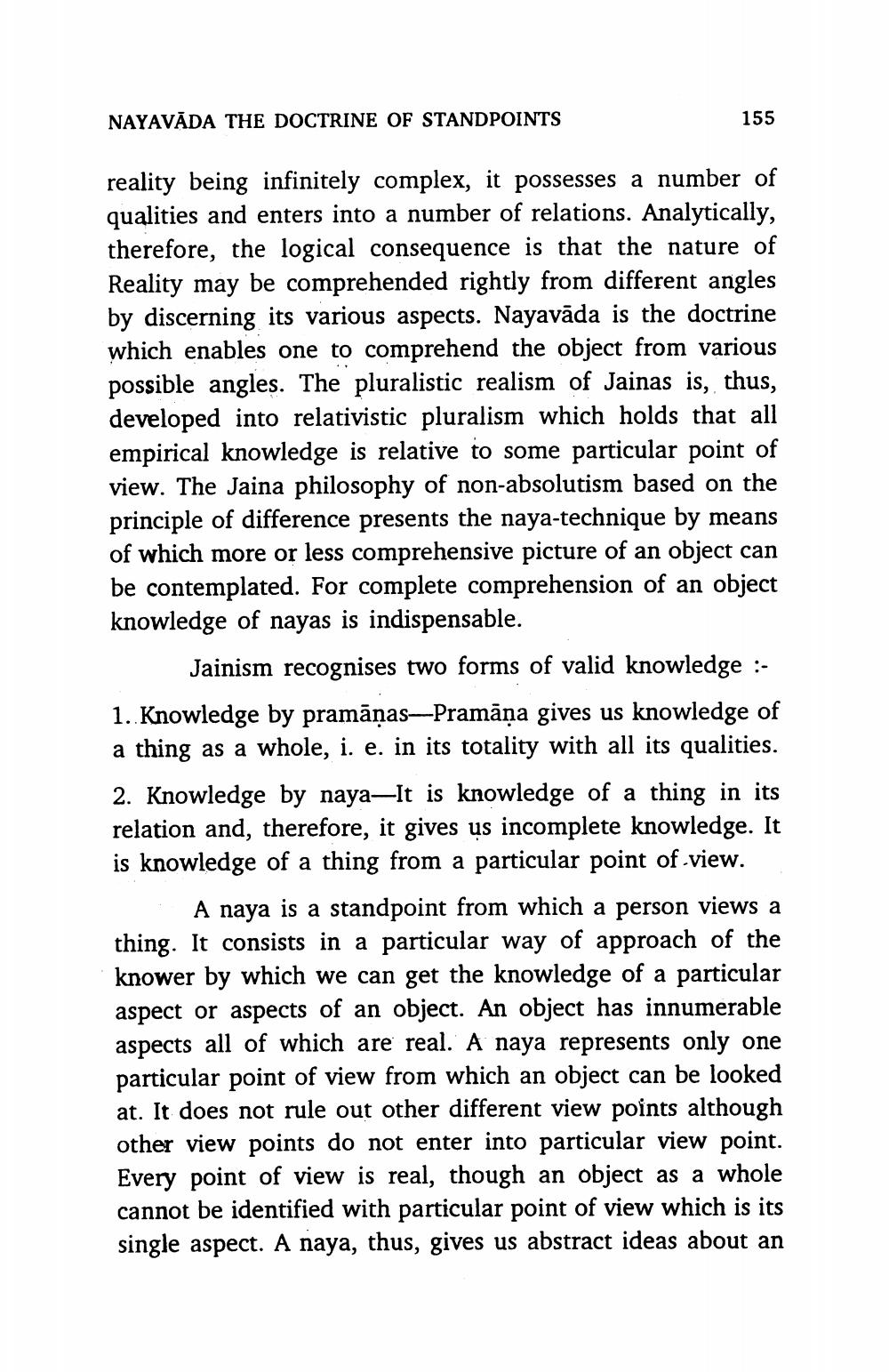________________
NAYAVĀDA THE DOCTRINE OF STANDPOINTS
155
reality being infinitely complex, it possesses a number of qualities and enters into a number of relations. Analytically, therefore, the logical consequence is that the nature of Reality may be comprehended rightly from different angles by discerning its various aspects. Nayavāda is the doctrine which enables one to comprehend the object from various possible angles. The pluralistic realism of Jainas is, thus, developed into relativistic pluralism which holds that all empirical knowledge is relative to some particular point of view. The Jaina philosophy of non-absolutism based on the principle of difference presents the naya-technique by means of which more or less comprehensive picture of an object can be contemplated. For complete comprehension of an object knowledge of nayas is indispensable.
Jainism recognises two forms of valid knowledge :1. Knowledge by pramāņas—Pramāņa gives us knowledge of a thing as a whole, i. e. in its totality with all its qualities. 2. Knowledge by naya—It is knowledge of a thing in its relation and, therefore, it gives us incomplete knowledge. It is knowledge of a thing from a particular point of view.
A naya is a standpoint from which a person views a thing. It consists in a particular way of approach of the knower by which we can get the knowledge of a particular aspect or aspects of an object. An object has innumerable aspects all of which are real. A naya represents only one particular point of view from which an object can be looked at. It does not rule out other different view points although other view points do not enter into particular view point. Every point of view is real, though an object as a whole cannot be identified with particular point of view which is its single aspect. A naya, thus, gives us abstract ideas about an




